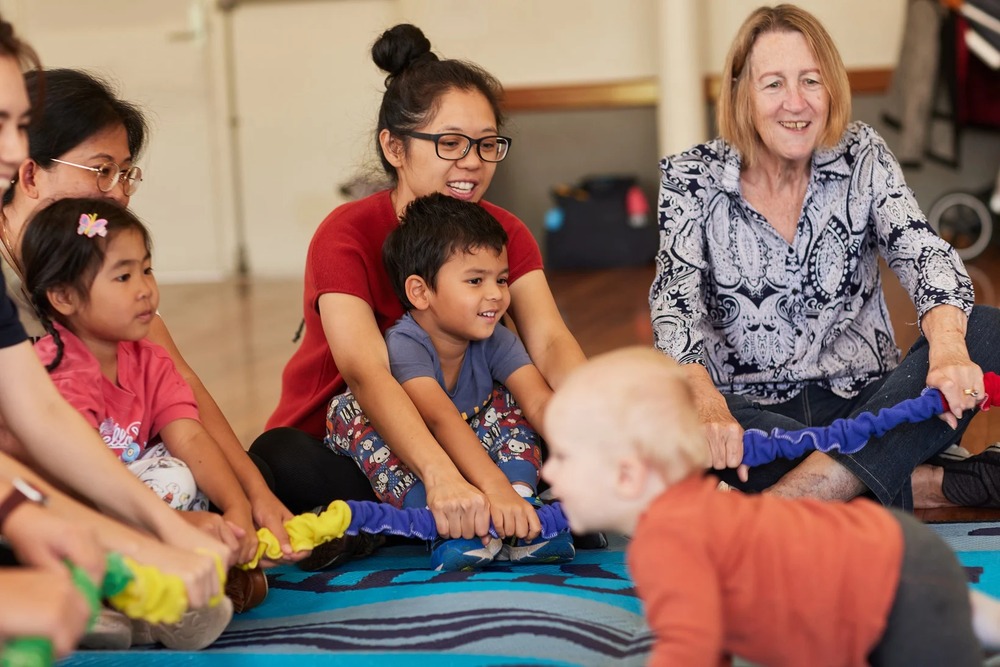Step aboard Learning Tail and sail for the journey of a lifetime as this unobtrusive, multi-textured universe of cultural studies is a playground for the curious minds of young explorers. A respect for and awareness of diversity have never been more vital; introducing children to multiculturalism is crucial.
Learning Tail’s core philosophy is to integrate Stuart Hall’s various theories and those of contemporary cultural studies into an interactive multicultural studies curriculum. The course combines sociology, anthropology, and more and includes the study of cultural texts and practices and the seminal work of Raymond Williams and Richard Hoggart.
Step into a world where popular culture, ethnicity, and their evolving interaction find form in the context of culture. With Learning Tail, learn a paradigm shift in how children understand the world. So, are you ready for the ride on this journey of enlightenment?
Why Multicultural Education Matters in Early Childhood

Multicultural learning during early childhood education forms part of the fabric, not an adjunct, and strengthens the fabric of young minds. Out of the very heart of cultural studies have come those at the forefront who have led us to understand how artistic practices and ethnicity constitute our society: Stuart Hall and others at the Centre for Contemporary Cultural Studies, Birmingham. Making these ideas accessible to children allows them to reach rich rewards.
Benefits Of Exposing Children To Different Cultures Early On

- Expands Perspective: The more exposure one has to different cultures, the wider one’s view on life will become —it will become a more accurate reflection of the colored tapestry that is society.
- Improves Cognitive Skills: Exposure to Multicultural information reinforces critical thinking and Problem-Solving Skills, Which Are developed when one understands that there could be other ways of looking at things.
- Language Abilities: The different languages, as can be seen in cultural literature and ways of life, add linguistic skills and make the individual a good communicator.
- Multicultural Education: The Role It Plays In Fostering Empathy, Respect, And Curiosity
- Empathy: Children learn empathy and empathize with the feelings of others from other cultures by walking in their shoes through cultural stories.
- Respect: If kids are taught that cultural differences are to be valued, they will learn to respect lifestyles, thoughts, and people’s expressions.
- Curiosity: Kids develop an interest in the world, including human beings, through multicultural education.
These various components inform Learning Tail’s program, but the program is also a force of those components in active form. The program engages sociology, anthropology, and the critical critiques of cultural theorists such as Raymond Williams and Richard Hoggart in a way that encourages the children to engage popular culture and contemporary cultural studies positively.
From cultural text study to exploring Marxist and non-Marxist cultural theory, Learning Tail’s approach to early childhood education is built around an inclusive, respectful, and intellectually stimulating experience. The power of Learning Tail lies in its offering of a universe of understanding initiated at the earliest points of formation in our youngest members, fostering an ethos of welcome in cultural diversity, which is also acquired and nurtured.
Traveling Learning Tail’s Global Itinerary For Cultural Study

Little travelers embark on a Learning Tail from scenic travel to an interactive learning journey into multiple world cultures. From gastronomy and festivals through languages, I am right at the center of world traditions from the perspective of the theory of cultural studies and the interdisciplinarity method typifying Learning Tail.
1. Festivals And Celebrations
Enter the hue of Diwali, the carnival fun, and the fasting congregation of Ramadan. Each festival is a story, a cultural object of how young minds connect with others’ traditions and values in different societies, the growth in cultural studies, and explorations of cultural phenomena.
2. Tasting The World
It’s a sensual delight and a multicultural celebration, from sushi rolls to pizzas at home. Food games offer cultural materialism; children are introduced to the world on the palate while learning healthy consumption and cooking.
3. World Languages
“Hello,” “Thank You,” and “Goodbye” open doors to other worlds and introduce early exposure to languages. The earlier the child plunges into the ocean of linguistic diversity, the higher his likelihood of high cognitive flexibility, and his cultural appreciation will be enriched with the learning mechanism to learn about cultural relations while studying culture.
4. Art And Crafts
Exposure to different traditional world arts, such as African Masks, Japanese Origami, and Aboriginal Dot Paintings, is possible through arts and crafts. Each of these crafts encourages fine motor skills and creativity based on the cultural origin and values of its original creation.
5. Music And Dance
Experience the beat of Samba, the poise of ballet, and the energy of African drums. Music and dance constitute a universal language for interaction with cultural texts and practices.
6. Geography And Landmarks
Virtual tours of virtual interactive maps allow students to travel around the world, from the Eiffel Tower to the Great Wall, all without leaving the comfort of their classrooms. These explorations awaken curiosity about the world, broadening children’s perception of space and awareness of their positioning in the world.
With each module, Learning Tail interweaves critical theory, cultural politics, and the cultural studies tradition in a manner that does justice to the intellectual heritage bequeathed by the University of Birmingham and those individuals who originally charted it. This not only extends the horizons of young students but also provides them with a better appreciation of diversity as it builds our world and demonstrates the power of cultural studies to build well-informed and open-minded citizens of the world.
The Learning Tail Advantage
Discover the Learning Tail advantage, where the theory of cultural study is brought to life for young explorers. Our program balances the richness of cultural texts and practices with age-adapted learning, parent participation, and cultural sensitivity to produce a convenient and versatile learning platform.
Age-Appropriate Content
Content carefully crafted to speak to a range of ages, so that every child receives an education as unique as his/her wonder.
Parental Involvement
Embark on interactive learning adventures together, creating lifelong memories while reinforcing the home as the first classroom.
Cultural Sensitivity
Each lesson is a window into the soul of cultures, handled with respect and dignity, as Stuart Hall and other cultural studies theorists encourage in postmodern cultural studies.
Convenience and Flexibility
A few clicks open a world where innovative and easy-to-use resources welcome you. Your time, your pace; we’re all for flexibility in pursuing knowledge.
How To Join The Adventure
- Getting Started: Enroll now, opening the door to a diverse learning environment.
- Promising Exciting Explorations: Every lesson with Learning Tail promises to make learning daring.
We admire Richard Hoggart and Raymond Williams’s interdisciplinarity here at Learning Tail, recognizing anthropology, sociology, and social sciences add depth to our content. Bringing together the discipline of intellectual superiority and passion for learning, consistent with Birmingham’s tradition and setting the cutting edge of popular culture, we have our Center for Contemporary Cultural Studies.
We are not just another learning program; we are cultural facilitators in the tradition of Stuart Hall, taking advanced theory and translating it into magic learning moments for small minds. Learning Tails sets each child up for success in a multicultural society by instilling the joy of cultural practice amidst vibrant diversity. Join us; turn curiosity into adventure, learning into passion, and bask in the richness of international culture with The Learning Tail Advantage.
